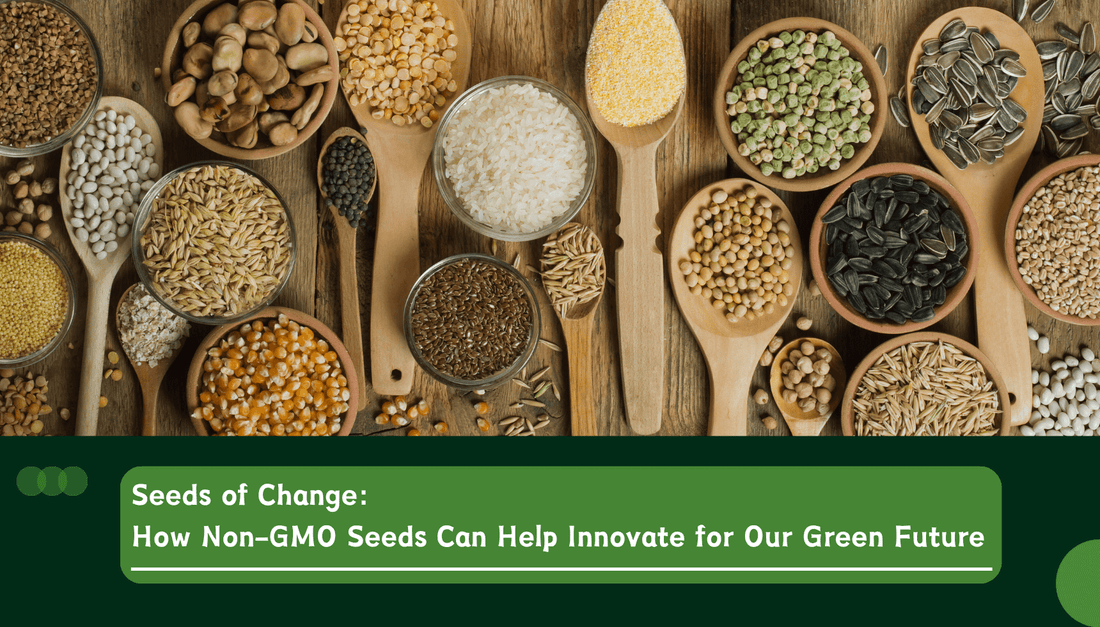Welcome, fellow champions of sustainability! Today, we dive into the world of non-GMO seeds and their remarkable potential in innovating for our green future. In an era where sustainable agriculture is more important than ever, these seeds are paving the way towards a healthier planet. Join us as we explore how non-GMO seeds are revolutionizing farming practices, protecting biodiversity, and making a significant impact on our journey towards a greener tomorrow.
Section 1: Understanding Non-GMO Seeds
First things first: what exactly are non-GMO seeds? Non-GMO stands for non-genetically modified organisms. These seeds are cultivated using traditional breeding methods, without any genetic modification. By preserving the natural characteristics of plants and crops, non-GMO seeds offer a sustainable alternative to genetically modified varieties. In this section, we will delve into the importance of non-GMO seeds and their role in fostering a healthier and more sustainable agricultural ecosystem.
Section 2: Revolutionizing Farming Practices
Traditional agriculture heavily relies on chemical inputs and genetically modified crops. However, non-GMO seeds provide an alternative that not only promotes biodiversity but also reduces our dependence on synthetic pesticides and fertilizers. From organic farming to regenerative agriculture, we will explore how these seeds are transforming farming practices by prioritizing soil health, water conservation, and ecosystem preservation. Prepare to be inspired by the success stories of farmers who have embraced non-GMO seeds and witnessed positive environmental outcomes.
Section 3: Protecting Biodiversity
Biodiversity is the bedrock of a healthy ecosystem. Unfortunately, modern agricultural practices have led to a decline in biodiversity, threatening the delicate balance of our planet. Non-GMO seeds play a vital role in conserving and promoting biodiversity. By preserving heirloom varieties and allowing natural cross-pollination, these seeds protect the genetic diversity of our crops. We will dive into the importance of preserving biodiversity, the role non-GMO seeds play in doing so, and the long-term benefits they offer for sustainable food production.
Section 4: Promoting a Healthier Planet
The choices we make as consumers have a significant impact on the environment. Opting for non-GMO seeds supports sustainable agriculture and promotes a healthier planet. These seeds not only reduce our exposure to genetically modified organisms but also minimize the use of harmful chemicals in our food production systems. We will explore how non-GMO seeds contribute to a cleaner and more sustainable food chain, empowering individuals to make conscious choices for their well-being and the planet.
Conclusion:
Non-GMO seeds hold immense potential in driving innovation for our green future. From revolutionizing farming practices to protecting biodiversity and promoting a healthier planet, these seeds are at the forefront of sustainable agriculture. By choosing non-GMO seeds, we can contribute to a more resilient food system, ensure the preservation of our natural resources, and safeguard the well-being of future generations.
Together, let us embrace the power of non-GMO seeds and their role in shaping a brighter future. By supporting farmers who prioritize sustainable practices, advocating for transparency in our food systems, and educating ourselves about the importance of non-GMO seeds, we can make a tangible difference. Together, let's plant the seeds of change and innovate for our green future!

